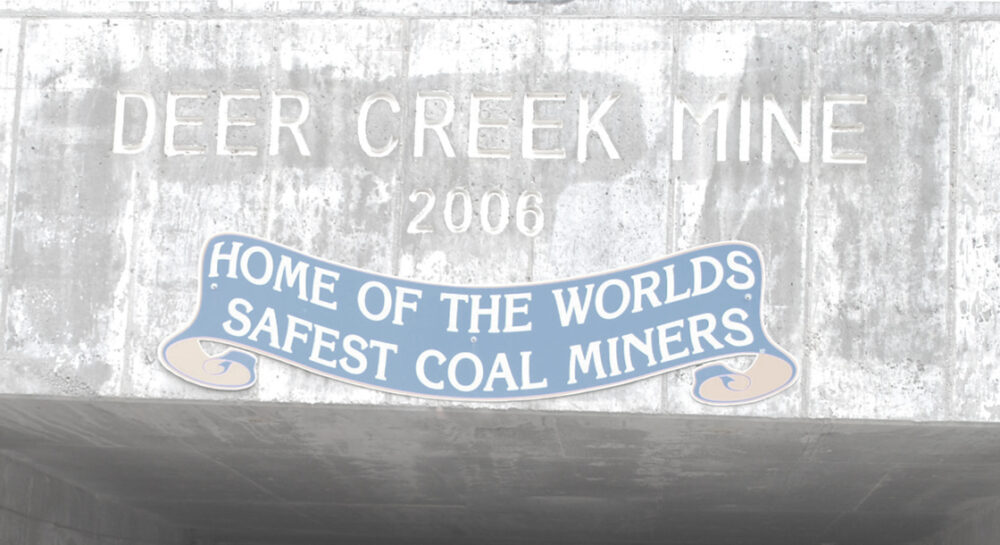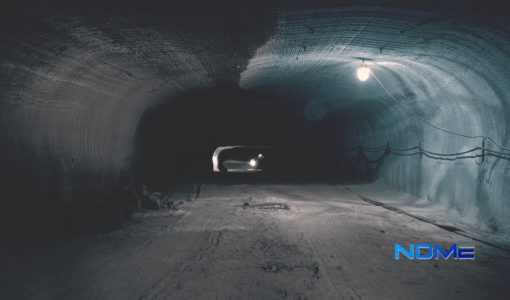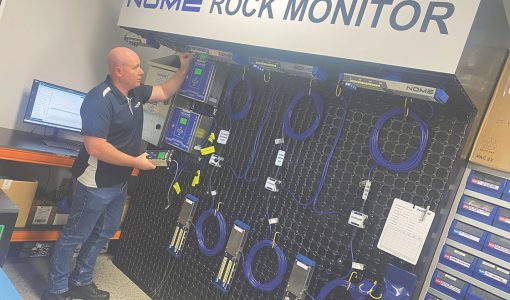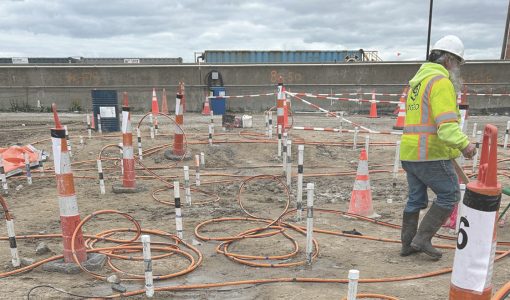Strata Worldwide played a sizable role in the proper, safe, environmentally sound reclamation of a Utah coal operation
The Deer Creek coal mine, in operation since 1974, came to an operational end in 2015. As a result, the mining operation in Huntington Canyon, about two hours south of Salt Lake City, powered down in early 2015.
Shortly after, Strata Worldwide – which had completed other projects at Deer Creek during its lifespan – set foot on the mine site once again to aid PacifiCorp in performing the proactive elements of Deer Creek’s reclamation plan. It used a team of eight individuals on two crews to complete the project safely and on time. The work focused on the effective management and movement of the mine’s discharge water once the operation was mothballed, and was completed in January 2018.
The Mine
Deer Creek, in operation for four decades, was owned by PacifiCorp and operated by East Mountain Energy in its final years prior to closure. PacifiCorp, which used its operations as mine mouths to feed its coal-fired power facilities, is itself owned by Berkshire Hathaway. The company serves millions of utility customers in multiple western US states through business units Rocky Mountain Power and Pacific Power.
At the time of Deer Creek’s closure, the underground longwall mine was the last in Utah to be union-represented and before shutting its doors employed about 180 workers. It mined from two seams, the Blind Canyon and the Hiawatha, at a depth of between 1,200 and 2,600 feet on average.
The Issue and Scope of Work
The main issue at Deer Creek was one of reclamation and discharge water management as the operation began its shutdown process. All aspects of the post-closure water management were required to be permitted by the Utah Division of Oil, Gas and Mining as well as the U.S. Mine Safety and Health Administration and subject to comment by other stakeholders including the Sierra Club.
It took some time to get to the starting point, as the review by regulators and potential contractors to determine a complete scope of work took about two years. Strata, acknowledging how complex the elements of the project were, took time to ask questions and verify parameters and data prior to submitting what ended up being a successful bid. In the meantime, facets of the work evolved; what was initially set to be a series of interlocking plugs for the groundwater and water discharge from the mine became a series of 26 dams.
Those dams, which were strategically placed throughout the underground locations at Deer Creek, were intended to direct water toward the portals and prevent discharge outside of the desired flow path. In the end, the flow path to the portals was determined by the slope directions of the entries and the dams constructed by Strata.
Strata’s work, once rolling at Deer Creek, involved preparatory site work and constructing the dams, which consisted of placing many 3’x3’x4’ interlocking concrete blocks. A subfloor foundation of concrete was also added to support the blocks, and once installed the entire dam was sprayed with a waterproofing membrane. This alleviated and prevented any potential leakage from the direction the groundwater was set to follow.
At the conclusion of the installation phase, Strata crews conducted a test to flood the area and see how the new dams reacted. It was noted that several dams were experiencing seepage, and Strata realized that the water was migrating around the dams through the coal ribs in some areas. Strata then brought in the Advanced Foam Solutions (AFS) product.
Strata AFS™ is a rapidly curing hydrophobic polyurethane foam designed to be injected into rock fissures, gravel layers, joints, cracks and voids to fill voids and consolidate strata. It is ideal for controlling and diverting water – including high volumes of gushing water.
The crews drilled into the mine’s ribs and floor, injecting the solution into those areas. The AFS quickly cured to create a solid, impermeable barrier that sealed against the water flow. Afterwards, they mixed a combination of bentonite (an absorbent aluminum phyllosilicate clay), and shotcrete, a concrete used widely in the industry for reinforcement, and sprayed the lower half of the area where water would likely accumulate due to gravity and grade.
The dams varied in height from four feet to more than eight feet, following the surveys and specifications of the mine owner.
Second, a series of high strength ‘plugs’ were designed and constructed in the mine’s portals, each measuring about 25 feet in thickness and containing roughly 200 yards of concrete. The concrete pour for the plugs had to be done in one continual pour, so Strata engineered and constructed sturdy form walls using EVG 3D panels and #9 rebar that would hold the pressure.
All areas had to be completely cleaned prior to construction, and Strata crews concreted all ribs, floor and roof in the impacted areas before building and shotcreting the form walls. A series of 14-inch HDPE drainpipes was placed to each plug to catch any underground water, allowing it to leave the mine and travel down the mountain through a pipeline to the power plant, where it would be used in plant operations.
This new infrastructure system was proactively placed within the mine to prevent water accumulation from ever becoming an issue for the now-closed coal mine.
Results
Work was completed in December 2017, and took a total of 55 days. It was wrapped up on schedule, under budget, and without injuries to the eight hourly and two salaried overseers from Strata or any other on-site contractors; it is important to note that price, cost and time schedule were all critical to the client so that the work would be completed during their pre-set reclamation calendar and fall within compliance with state and federal outlines. No post-work issues arose from regulatory stakeholders.
Strata also reported that no sizable obstacles emerged during the course of the project, and all points of completion were met successfully. That included weather, which can often be unpredictable during central Utah winters.
“We were very satisfied,” reported Mine Manager Devin Leroy. “Strata came in and did a great job in a very time-sensitive situation. Excellent job, and got it done in a safe manner.”
“We have worked with a lot of companies in the Western U.S.,” added Strata Mine Service’s general manager, Josh Behling. “Working with PacifiCorp was great. We had their full support on everything we did and they gave us the equipment, resources and any guys they had available to help out where needed.”



